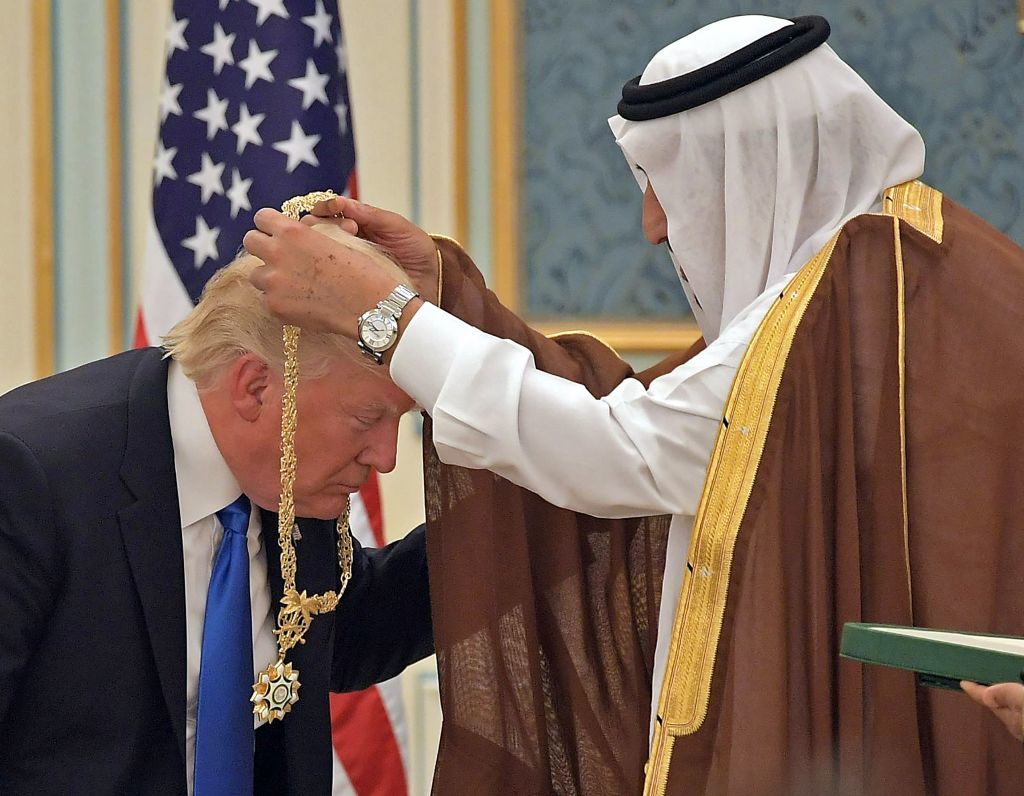Today marks the first anniversary of an ongoing embargo more familiar to the 19th Century than the 21st. Last June, Saudi Arabia – and its allies the United Arab Emirates, Bahrain and Egypt – imposed a ‘land, sea, and air blockade’ of its tiny neighbour Qatar. The embargo, Saudi Arabia claimed, was in response to Qatar supposedly funding Islamic extremism. It would end, Saudi officials said, if the country agreed to meet 13 demands that included shutting down the Qatari media network Al Jazeera and breaking off diplomatic relations with Iran.
At the time, President Donald Trump seemed to endorse the blockade, tweeting:
“So good to see the Saudi Arabia visit with the King and 50 countries already paying off. They said they would take a hard line on funding extremism, and all reference was pointing to Qatar. Perhaps this will be the beginning of the end to the horror of terrorism!”
Officials from the US Department of State were horrified with their President’s comments which followed his visit to Saudi Arabia, with one choosing the tweet from an embarrassment of riches as “the most difficult moment of the Presidency so far.”
A year on from his sword dance in Riyadh, Trump’s mood has changed. In April, he hosted the Emir of Qatar at the White House and blamed Saudi Arabia and the UAE for funding terror activity while praising Qatar’s progress on the issue.
Despite their original bluster, Saudi Arabia has ended up with none of their 13 demands being met. Things have not been made easier for Qatar’s enemies by their involvement in the ongoing crisis in Yemen. While Saudi Arabia and its coalition is consistently under fire for humanitarian violations in the conflict, Qatar has been able to focus on domestic issues. Without the pressure from neighbours that once stalled reforms, there has been progress on labour and human rights laws to such extent that the country has been praised by the previously critical Human Rights Watch.
In the midst of the North Korea crisis, it is easy to miss that there is another approaching summit in September that is just as important to world security. The US has agreed to host a meeting in Washington between Qatar, Saudi Arabia, and the UAE in attempt to resolve the situation. Trump, never keen to miss an opportunity to impress, will not ignore the chance to once again emerge as an unlikely peacemaker. However, even Qatari insiders don’t see any deal being a panacea to the blockade. It is likely that a resolution will make things easier for ordinary people, but the government level embargo will continue. There are also fears that even if a deal is made, there could be a move by Saudi Arabia to disrupt the FIFA World Cup set to take place in Qatar in 2022. It would not be surprising, one Qatari official admits, if a new blockade was put in place just months before the tournament by Saudi Arabia.
These fears mean that any agreement will need to be monitored and guaranteed by a third party country as trust in the Gulf Cooperation Council – the region’s intergovernmental body and historic watchdog – has evaporated.
The natural choice to monitor any agreement would be the UK, but the British government has been conspicuously absent throughout the blockade. Despite issuing a statement condemning the embargo, no special envoy has been appointed by Theresa May, something both the US and France have done. For a country with such historic ties to the region – Qatar and its neighbours were British Protectorates until the early 1970s – the absence is peculiar. All signs for why seem to point to Brexit. Theresa May is keen not to follow the example of Angela Merkel, who, after condemning the blockade, saw repercussions for German workers in Saudi Arabia. And so as the UK vies to prove its trading power after 2020, it is keen not to step on any toes before trade deals have been signed, leading to a new position in British history of, for once, not getting involved in the Middle East’s problems. It is extremely unlikely that the US and its allies will allow the blockade of Qatar to reach its second birthday, but the mistrust in the region is not going anywhere.


















